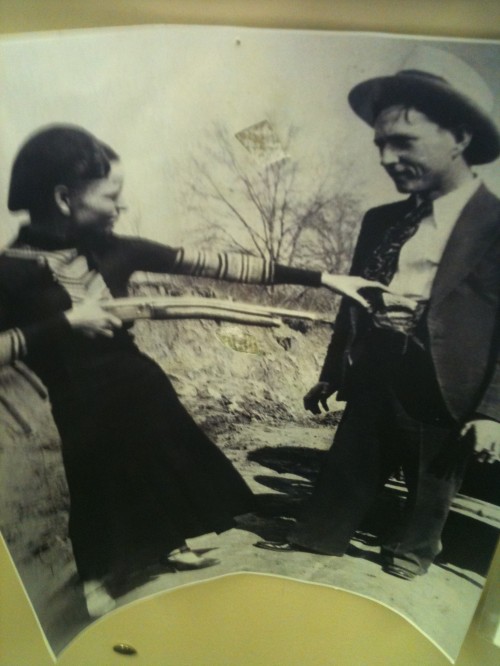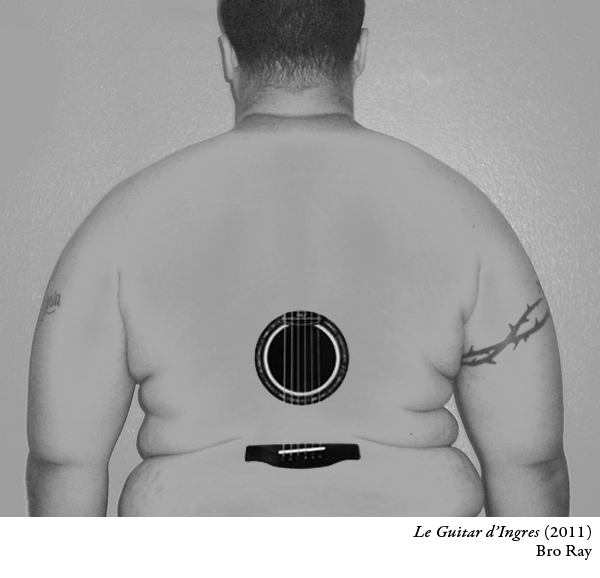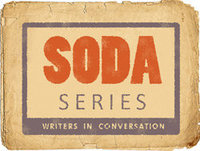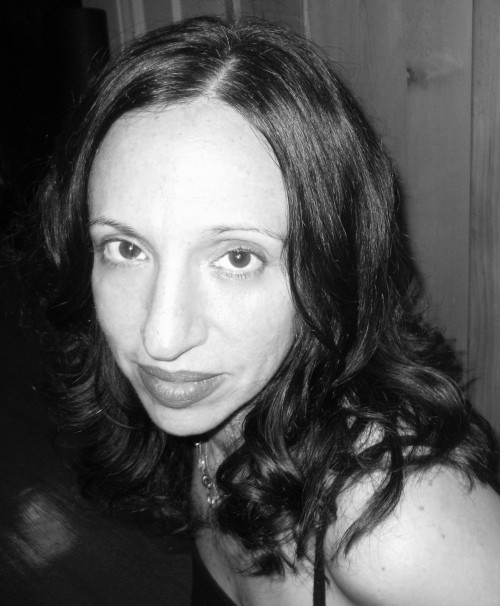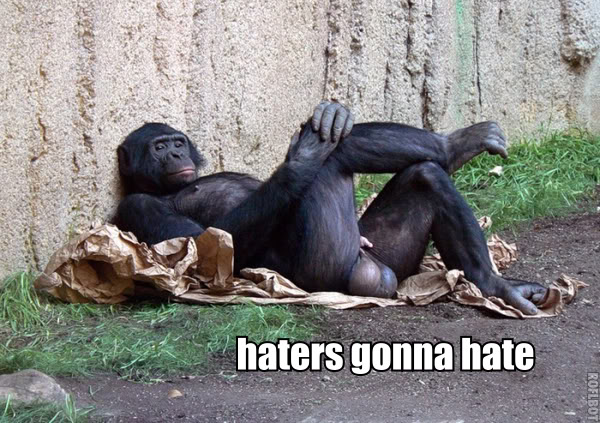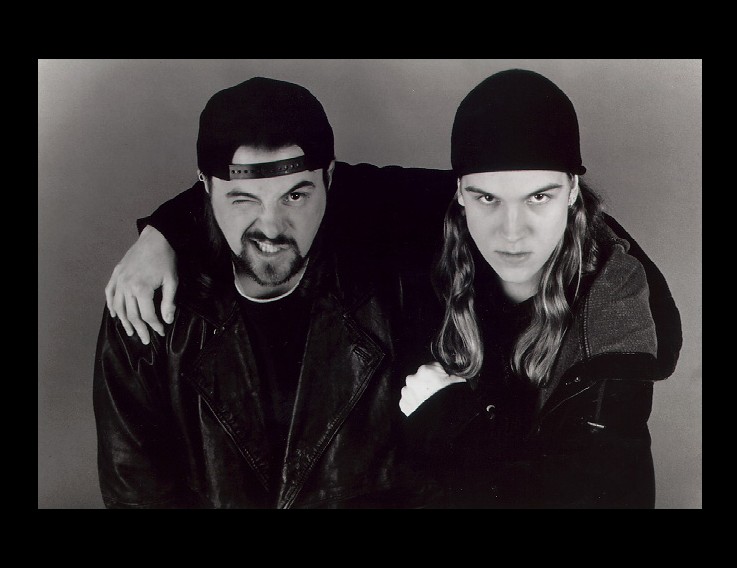biochemistry made 11 cats
1. Cathy Day said, “Why not write in the classroom and workshop outside the classroom?” (It’s about time to write a traditional-workshop-structure-is-dead post, but not now. Later.)
1. After 130 years they dig up a Robert Louis Stevenson novel. (No, Tess Gallagher did not find it in a sock drawer.) Stevenson abandoned it. So people ‘finish’ it for the dead author, publish it. Same old story.
1. Best books on Nuclear accidents/fears/history.
1. Tablet & Pen: Literary Landscapes from the Modern Middle East.
11. Visual artists rarely feel the need to explain the artifact. Writers often do. Why is that?
Papermongering

Pulp. Fibrous, cellulose pulp. Grass-paper, rag-paper, rag-and-bone, paperweight: in the second century Cai Lun developed a paper process. Tiny little papermills of the mind. Cogs and wheels of papermaking, pulping, rod-and-doweling. And then a lunatic of the senses, the world becomes that, is that, mired in that. Words. Cultural disease, newsprint, papyrus bundles. In the chemical pulping, all our senses. In the mechanical pulping, all trees like a billion Christmases. A cooking process. Waste fortifies chalk and china clay. Watermarks destroy the day and deckle its edges.
We’re all of an age that recycling is second nature. We use the backs of receipts for listmaking—if we use paper at all—before we toss paper into the recycle bin. We read on screen. We mostly do paperless banking, paperless billing, paperless letter writing. We practice efficiency. We download 572 books onto our little reading devices and plow through them candily.
But I’ll tell you what. I got the proof copy of my book in the mail yesterday, and there is nothing in the world like seeing your book in all its pulpy flesh. It is a real object, a hallelujah of paper and ink. It’s a book, which is a thing. I can slip it into my purse and feel it there. It’s the synecdoche of language-as-artifact, a receptacle for artfulness. I wouldn’t be nearly as happy to have a book published in the ether. Look! Here’s my book in the air! No way. I want to see it, feel it, bruise it, lick its spine.
The book industry could stand to cut down its waste, as all industries could. We’re wasteful motherfuckers with our overstocks and our throw aways—even the zoos breed more animals than they can use and sell them to more wasteful idiots who think having exotic pets is fun. Have you seen how much meat your big box grocer throws away weekly? The machine is unwieldy and alive all around us.
But trim the fat. Trim the fat. Don’t throw away the whole goddamn bird.
Interview Roundup, Eleventh and Final Part: Davis, Gimenez-Smith, Dixon, Irving, Borges
 “When you’re not wearing your glasses, all you can see is what is close to you. You can’t see the context. You can’t see the rest of the room or across the street. I also didn’t wear my glasses some of the time out of vanity. I have thought about this because I notice it all the time—that in reading students’ work or discussing other peoples’ work, I don’t have much trouble focusing on detail, word to word, sentence to sentence, but I have to make a major effort to step back from a piece of writing and summarize what its themes are. As a child I resisted knowing much about the outside world—politics, international situations. In college I had only a very vague sense of facts, of distances. I remember being asked in some psychological test how far it is from New York to London, and even though I’d been to Europe at least twice already, I said about 15,000 miles. I was terrible at current events in school. I did well on one assignment which was to take a newspaper article and point out where the reporter was showing bias. Again, that was a close textual analysis.” – Lydia Davis in BOMB
“When you’re not wearing your glasses, all you can see is what is close to you. You can’t see the context. You can’t see the rest of the room or across the street. I also didn’t wear my glasses some of the time out of vanity. I have thought about this because I notice it all the time—that in reading students’ work or discussing other peoples’ work, I don’t have much trouble focusing on detail, word to word, sentence to sentence, but I have to make a major effort to step back from a piece of writing and summarize what its themes are. As a child I resisted knowing much about the outside world—politics, international situations. In college I had only a very vague sense of facts, of distances. I remember being asked in some psychological test how far it is from New York to London, and even though I’d been to Europe at least twice already, I said about 15,000 miles. I was terrible at current events in school. I did well on one assignment which was to take a newspaper article and point out where the reporter was showing bias. Again, that was a close textual analysis.” – Lydia Davis in BOMB
 “I am enthralled by syntax, by the sinews of the sentence. Often my absorption in the line leads to language becoming pure sound for me, something like murmur, but of course the printed word itself and at least the shadow of its meaning always remain. I love Wittgenstein’s take on this stuff, the way he seems so utterly perplexed by it, which I think is the correct attitude to take when it comes to thinking about the relationship between the look of the word on the page and the sound of the word in your head or your ear. There’s a line somewhere in the Investigations: “Remember that the look of a word is familiar to us in the same kind of way as its sound.” I suppose “Tree Tree Tree” speaks to this look–sound problematic in some way.
“I am enthralled by syntax, by the sinews of the sentence. Often my absorption in the line leads to language becoming pure sound for me, something like murmur, but of course the printed word itself and at least the shadow of its meaning always remain. I love Wittgenstein’s take on this stuff, the way he seems so utterly perplexed by it, which I think is the correct attitude to take when it comes to thinking about the relationship between the look of the word on the page and the sound of the word in your head or your ear. There’s a line somewhere in the Investigations: “Remember that the look of a word is familiar to us in the same kind of way as its sound.” I suppose “Tree Tree Tree” speaks to this look–sound problematic in some way.
My first language was Spanish. Writing in a language other than that with which I grew up, with which I learned to think and feel, has surely had some bearing on my relationship to writing. I love finding words and sounds from other languages buried in English; I prefer to imagine discrete languages as continuous, like adjoining rooms connected by a common door — sound. When I revise a poem, I’m thinking primarily about sound, syllables as phonemic puzzle pieces. I wrote “Tree Tree Tree” in graduate school; I think it was exhibitive of my coming to this awareness of new sonic possibilities in my writing.” – Carmen Gimenez-Smith in La Bloga
 “I write about sex the way it is. I try not to be salacious. I, in fact, go out of my way not to be. I feel the best way to handle sex is naturally. I don’t write to get anyone excited by my depictions of sex. But I don’t want to write something other than the way it happened. Lots of times I just say the couple did it. Other times, because of what’s happening in the sex act that reveals plot and character, it’s necessary to go in to greater detail. Sex has usually been an important part of most of the characters in my fiction, but just one part.” – Stephen Dixon in Bookslut
“I write about sex the way it is. I try not to be salacious. I, in fact, go out of my way not to be. I feel the best way to handle sex is naturally. I don’t write to get anyone excited by my depictions of sex. But I don’t want to write something other than the way it happened. Lots of times I just say the couple did it. Other times, because of what’s happening in the sex act that reveals plot and character, it’s necessary to go in to greater detail. Sex has usually been an important part of most of the characters in my fiction, but just one part.” – Stephen Dixon in Bookslut
 “When people ask me what my novels are “about”, the word “about” gives me the chills. I believe that, in any novel of mine, the principal objective is the construction of the whole. The excitement for me is the architect’s excitement. That little road map I make, making my way backwards to where I think the story should begin, that little sketch, the skeleton of the novel, the scaffolding of the building I’ve not yet made, is nothing but an outline of the action of the story. There are no details. The details emerge as the sentences do. I sometimes think that what I do as a writer is make a kind of colouring book, where all the lines are there and then you put in the colour. I never start writing the novel, consecutively telling the story, until I’ve gone from that last sentence to the first. I now have those two poles and I know all the action. From the moment I start writing, I don’t have to think about what’s going to happen, and maybe this is why Thomas Hardy is almost as important to me as Dickens. I like the writing in Dickens far better than I like the writing in Hardy, especially the dialogue. For someone like me, who knows the fate of all his characters, how wonderful it is that Hardy believed, as he surely did, in the predetermination of all his characters.” – John Irving in New Statesman
“When people ask me what my novels are “about”, the word “about” gives me the chills. I believe that, in any novel of mine, the principal objective is the construction of the whole. The excitement for me is the architect’s excitement. That little road map I make, making my way backwards to where I think the story should begin, that little sketch, the skeleton of the novel, the scaffolding of the building I’ve not yet made, is nothing but an outline of the action of the story. There are no details. The details emerge as the sentences do. I sometimes think that what I do as a writer is make a kind of colouring book, where all the lines are there and then you put in the colour. I never start writing the novel, consecutively telling the story, until I’ve gone from that last sentence to the first. I now have those two poles and I know all the action. From the moment I start writing, I don’t have to think about what’s going to happen, and maybe this is why Thomas Hardy is almost as important to me as Dickens. I like the writing in Dickens far better than I like the writing in Hardy, especially the dialogue. For someone like me, who knows the fate of all his characters, how wonderful it is that Hardy believed, as he surely did, in the predetermination of all his characters.” – John Irving in New Statesman
 “Ah, Middlemarch! Yes, of course! You mean the whole universe is linked together; everything linked. Well that’s one of the reasons the Stoic philosophers had for believing in omens. There’s a paper, a very interesting paper, as all of his are, by De Quincey on modern superstition, and there he gives the Stoic theory. The idea is that since the whole universe is one living thing, then there is a kinship between things that seem far off. For example, if thirteen people dine together, one of them is bound to die within the year. Not merely because of Jesus Christ and the Last Supper, but also because all things are bound together. He said—I wonder how that sentence runs—that everything in the world is a secret glass or secret mirror of the universe.” – Jorge Luis Borges in the Paris Review
“Ah, Middlemarch! Yes, of course! You mean the whole universe is linked together; everything linked. Well that’s one of the reasons the Stoic philosophers had for believing in omens. There’s a paper, a very interesting paper, as all of his are, by De Quincey on modern superstition, and there he gives the Stoic theory. The idea is that since the whole universe is one living thing, then there is a kinship between things that seem far off. For example, if thirteen people dine together, one of them is bound to die within the year. Not merely because of Jesus Christ and the Last Supper, but also because all things are bound together. He said—I wonder how that sentence runs—that everything in the world is a secret glass or secret mirror of the universe.” – Jorge Luis Borges in the Paris Review
NY: SODA SERIES this SUNDAY
7 PM @ March 20th
Soda Bar in Prospect Heights, Brooklyn.
629 Vanderbilt Ave.
four writers talking to each other, with each other, between each other
featuring our own Mike Young
The Public Performance of Art
Yesterday, I went to this really amazing performance art thing.
Yesterday was also St. Patrick’s Day, an international day of drunken publicly-performed assholery.
 Both are public performances, but only one is considered art.
Both are public performances, but only one is considered art.
Is the art one considered art because it is intentionally performed? Isn’t drunkenness also intentionally performed?
What is Experimental Literature? {Five Questions: Susan Steinberg}
Susan Steinberg is the author of the short story collections, Hydroplane (FC2) and The End of Free Love (FC2). Her stories have appeared in McSweeney’s, Conjunctions, The Gettysburg Review, American Short Fiction, Boulevard, The Massachusetts Review, Quarterly West, Denver Quarterly, LIT, Columbia, and elsewhere. She has held residencies at The MacDowell Colony, The Vermont Studio Center, The Wurlitzer Foundation, the Blue Mountain Center, and Yaddo and was recently Scholar-in-Residence in the Department of Performance Studies at NYU. She received a BFA in Painting from the Maryland Institute College of Art and an MFA in English from The University of Massachusetts, Amherst.
On Criticism
I’ve been spending a lot of time lately thinking about the position of criticism. At least, specifically in the online sphere. Clearly, the culture of criticism is something that helps perpetuate discussion about this stuff we like, which is always a good thing. Namely, this stuff we like, here at HTMLGIANT, is literature. Criticism can be great because it can carry on a conversation about a piece of work which helps to maintain the lifespan of the work. This is stuff that needs to happen– literature should not be read and forgotten, it should live on in other words I think.
The first public writing I ever did on the internet was film reviews. I started doing it because I was watching a lot of movies that had me really fucking excited, but nobody else on the internet was writing about them. Or, if they were mentioned at all, it was either in dismissive brevity or a simple exclamatory remark like “THIS SHIT IS DOPE!” Empty hyperbole is fine, and sometimes that’s all you have the energy to say, but I didn’t want to leave the space of these films. I wanted to engage with them and keep them going, because I knew they were powerful and needed some more recognition.
The first problem I ran into would be when I would watch something & end up not liking it at all. At the time, when I was basically just “developing content” in addition to gaining experience with what it was that I was doing, anything I had in my mind that I was going to review before watching it, I was stubborn enough to actually write about. If I found a film mediocre, the writing became a chore. If I hated a film, it was easy to spit vitriol, but I knew I wasn’t engaging with the film & that my commentary was useless. So, to put it simply, I stopped reviewing anything I didn’t like.
Story + Geography = Memory (via Andi Bell’s Link Method)
httpv://www.youtube.com/watch?v=X-xl7_hdWZo&feature=player_embedded
httpv://www.youtube.com/watch?v=9NROegsMqNc&feature=related
An open letter to Kevin Smith (aka Silent Bob) about silence and writing-as-shitting
Dear Kevin Smith,
You have a fucking radio show? That’s kind of hilarious because you were always the silent one. You were Silent Bob. You went from being pure body to pure voice. Why’d you do it, man? There was something philosophical about your silence, they way you were so expressive without saying anything. We all liked to imagine what you were thinking, how you were perceiving everything that was going on around you. There was a profound quality to your sparse interjections (because you never spoke, because of the scarcity of your words). The law of economics says that when demand exceeds supply, value increases. Maybe I should shut up. Maybe I should retreat into silence like you once did. Maybe then—only then—will people give a shit about any of this. Any of these words.
When you did speak, we felt lucky to be graced by your wise words. Because you never spoke, we felt like you were enlightened, like you were beyond language, like language was something the petty people did, and you did not need it. You were above all that, the way spiritual gurus are above food, the way they no longer need to satiate those earthly desires. You didn’t need to feed the part of the body that longs for recognition. You were a watcher, an observer. Everyone around you was always blabbering on and on, but you didn’t feel the need to fill up space in the same way. You know, most people feel anxious about silence. It’s the hardest thing, to live in silence. You can’t just “be” next to someone. It makes you totally nuts to feel like you don’t know what they’re thinking. Maybe their silence means hatred. Maybe I’m fucking boring. So we talk on and on because we are afraid, because we need to know where the other person is at, because silence can mean anything and we need our interactions to be anchored in certainty.

